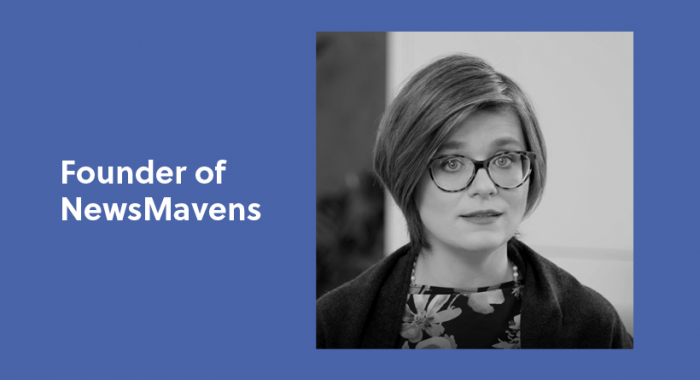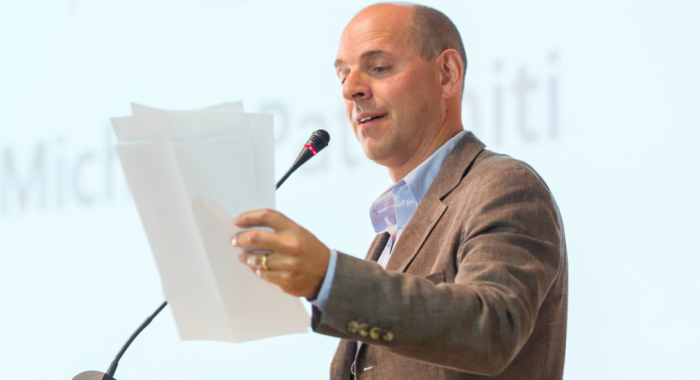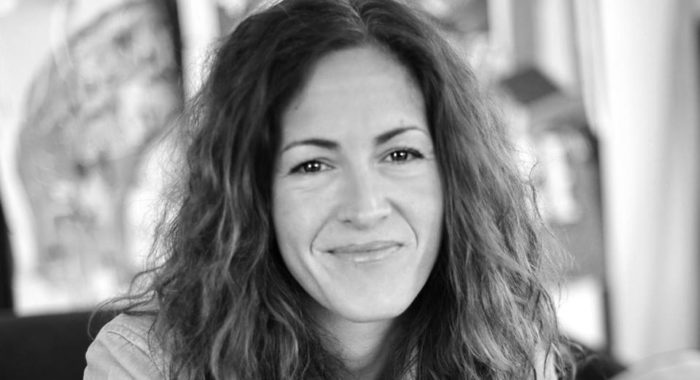The Power of Storytelling speaker Zuzanna Ziomecka is the founder of NewsMavens, Europe’s front page produced entirely by women. She was raised and educated in the United States and chose to return to her native Poland where she is currently based.
She has been outspoken about why the modern activist feminists are still angry in the democratic West and how the women’s movements can help shape the future of Europe as democracy is derailing. She is also a mindfulness practitioner and trainer and says mindfulness has helped her become a better journalist and editor as well as help her to cope with adversity.
She spoke to the Power of Storytelling team about how her experience with NewsMavens and her practice of mindfulness help her find opportunities in conflict, and why journalists still don’t see the whole picture.
PoS: How did you get into journalism?
Zuzanna Ziomecka: “I found myself working for a publishing company on the internet side and they recognized that my organizational and leadership skills would be best put to use in the editorial room. And I resisted this because I desperately wanted to go a different way than my parents, and both of my parents are journalists. Their involvement in the underground solidarity press was the reason we were forced to emigrate from Poland in 1982. I intended to do something different in my life than they did, but when I discovered that editorial work has the capacity to make a tremendous impact on communities, I settled into what my parents insist was inevitable, and have been enthusiastically pursuing my work in the media for the last 17 years.”
Your TEDx talk highlights how women can play an active role in designing Europe’s future. How did you choose this topic?
“Mindfulness involves the art of stepping off the dance floor and onto the balcony. The dance floor is where we are all involved in our activities, where we react, where we push and pull. The balcony is when we step back and take a look at the wider picture, including our own involvement in what is happening. This balcony perspective is what NewsMavens affords me in a unique way because it covers all of Europe, and while our curators contribute content pertaining to their countries, the job of my editorial room is to connect those dots and spot emerging trends.
So sitting on the balcony editorially but also as a woman, as a mother, as a European and as a liberal progressive, it is impossible not to notice a very important shift of where the world finds itself now.
I am also very attuned to technology. My first career experiences were in Silicon Valley from 1998-2000, during the first dot-com bubble. I have therefore been very sensitive to the developments of technology and its impact on our lives.
We have arrived at a very particular moment where this highly celebrated term ‘disruption’ I think has brought us to the end of the fruitful contributions it can bring. I think further disruption has the potential to become destructive to our democracies, to our job market and to our relationships.
And observing these facts creates a natural need for change-makers to bring the world back into equilibrium.
There is a group of people who stand to lose the most if the current world order unravels and that is the women’s movement. We can already see in Eastern Europe that the rolling back of democratic institutions and checks and balances has an immediate impact on women’s rights. Our rights are the first to get thrown under the bus. Therefore we are naturally the most mobilized foot soldiers of protecting the future we would like to see for ourselves and our children. So it is from this vantage point of looking at Europe, of looking at tech, and of being a mindfulness practitioner that I observe the emergence and the potential that women represent.
You are not only a mindfulness practitioner but a teacher. Why did you decide to become a trainer?
“I decided to become a trainer because essentially I am not a die-hard, born journalist, I am more of a medium. I learn things, I digest them and I pass them on. And I do that as a speaker, as a writer, as an editor or as a trainer. For me, it’s the same thing. It’s ingesting interesting information and making sure that it is shared with enthusiasm.
I have learned a model of leadership that I find is really impossible to do without the self-awareness, the self-regulation and focus that mindfulness brings. So I put them together in a ‘mindfulness-based advanced leadership program’ for both the public and the private sector.
Mindfulness brings a lot of value to journalistic work. When you’re doing an interview as a journalist, you have questions, you have a plan. There’s something that you want to learn, and therefore your attention jumps between what your interviewee is saying and what you want them to say. You listen with one ear but also at the same time you’re thinking of what you’re going to ask and where you want the interview to go. This is normal, this is how most of the conversations happen.
When you add mindfulness to the mix, you let go of your prepared questions. You listen with 110 percent and you follow your interviewee to where they want you to discover value. It’s a different kind of interview but extremely enlightening and has proven very valuable in my work.
It also brings a lot of value to editorial management. You learn to see your biases and where your blind spots are. You learn to value differences of opinion and hold back from this habit of making conflicts go away. What mindful leadership shows is that conflicts can be very fruitful. They can bring forth change and growth.”
Your talk at The Power of Storytelling will focus on perspectives. What do you think people, and particularly journalists, still get wrong about perspectives in storytelling?
“I think the biggest misconception, that is slowly going away but is still present in a lot of what I read about journalism, is that there is such a thing as objective facts. What modern neuroscience tells us is that we are surrounded by millions of bits of information at any given point, and we are incapable of digesting more than a few bits from any given moment. That means that our brains do this massive filtering. If you think Google is filtering information, that is nothing compared to what our brains are doing, and have to do, otherwise we would probably short-circuit the moment we open our eyes as newborns.
This is a key survival trait but it has consequences that we need to recognize and work with. What it means is that anybody looking at the same situation is going to come away with a memory that is different from what the person next to them remembers. We filter based on the way we are brought up, the way we are programmed by culture, the way we are taught to observe the things that are important to us.
And one of the ways that influence how we perceive reality is gender, because gender comes with its own experiences, its own specific way that women are educated, brought up and shaped by society and so we notice different things.
The misconception that journalism has been under for many years is that we as professionals are able to provide something close to objective reality in our reporting. This is impossible. We always filter through our own perspective. I don’t think there’s anything inherently wrong with that, but I think we need to acknowledge it and work with it. The more diversity you include in the observational role, the more it is quite likely that the picture that comes together when we report on this issue will be closer to reality. We will miss less and this is the most important argument for diversity, for the inclusion of women, of people of color, people of different religious backgrounds and sexualities. It is very important to understand that the more difference we introduce, the closer to reality we get.”
Zuzanna Ziomecka is speaking at the 8th edition of The Power of Storytelling. Register here to meet her and the other amazing speakers who will tackle this year’s theme: Rewrite.
The text was edited for clarity.



